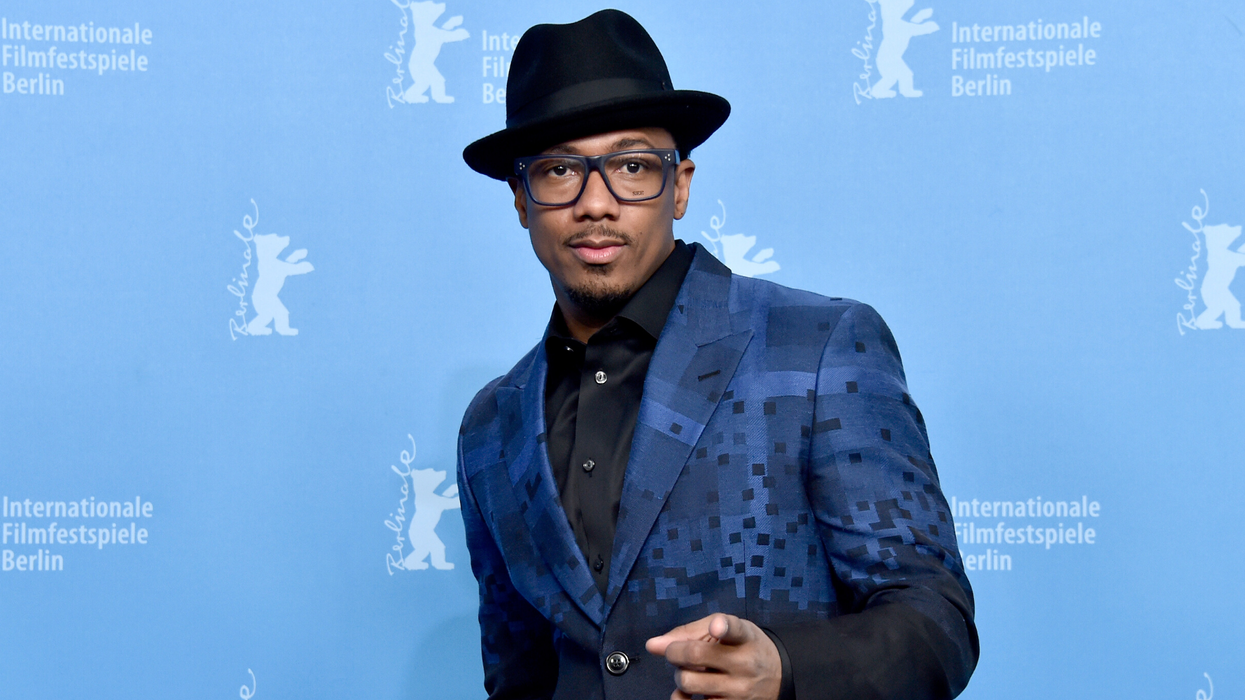Moya Lothian-McLean
Jul 16, 2020

Getty
A lot of important discussions have been triggered as a result of the Black Lives Matter movement.
In asking people to confront deep-rooted, structural, anti-Black racism, the movement has also encouraged inter-community conversations about forms of prejudice even between marginalised groups.
Which is why offensive, antisemitic comments made by Black MTV host Nick Cannon have proved a distressing but teachable moment for many.
What did Nick Cannon say?
In an episode of Cannon’s podcast Class, the presenter spoke to rapper Richard Griffin, which was recorded over a year ago but released to streaming platforms on 23 June.
Griffin left rap group Public Enemy in the 1980s after making antisemitic comments.
In Cannon, it appeared he found a kindred spirit.
During the interview, the now-former host of Wild N’Out cited several antisemitic conspiracy theories, including claiming that Black people were the “true Hebrews” and said that “Jewish people, white people, Europeans” are a “little less” and have a “deficiency”.
He also cited the much-debunked antisemitic theory that powerful Jewish families control the world, mentioning the Rothschilds, “centralised banking” and the “13 bloodlines”.
Cannon said he could not be antisemitic because Black people were the “true” Semitic people.
After the podcast aired, ViacomCBS announced they were dropping him from his contract.
Fox, however, has decided to allow Cannon to remain as host of popular singing competition The Masked Singer.
How has Nick Cannon responded?
After being fired by ViacomCBS, Cannon posted a lengthy apology to his Twitter account.
In full, it said:
First and foremost I extend my deepest and most sincere apologies to my Jewish sisters and brothers for the hurtful and divisive words that came out of my mouth during my interview with Richard Griffin. They reinforced the worst stereotypes of a proud and magnificent people and I feel ashamed of the uninformed and naïve place that these words came from. The video of this interview has since been removed.
While the Jewish experience encompasses more than 5,000 years and there is so much I have yet to learn, I have had at least a minor history lesson over the past few days and to say that it is eye-opening would be a vast understatement.
I want to express my gratitude to the Rabbis, community leaders and institutions who reached out to me to help enlighten me, instead of chastising me. I want to assure my Jewish friends, new and old, that this is only the beginning of my education – I am committed to deeper connections, more profound learning and strengthening the bond between our two cultures today and every day going forward.
Rabbi Abraham Cooper, the Simon Wiesenthal Center’s associate dean, confirmed to Associated Pressthat he and Cannon had spoken for 30 minutes prior to the latter’s apology.
“He started out the right way, he said the right things. Half an hour is a long time, and we’ll probably meet tomorrow in the LA area,” said Cooper.
“He understood that the words and references that he thought were based on fact, turned out to be hateful propaganda and stereotypical rhetoric.”
Why are Nick Cannon's remarks so offensive?
Black Jewish individuals (who very much exist!) have been taking the time to lay out why Cannon’s comments were founded upon ignorance and misplaced racial hierarchy rhetoric.
In a thread, a Twitter user called Malana debunked the various falsities in Cannon’s understanding of Jewishness.
First they explained why many Jewish people historically had been forced to work in finance – and how this later became a stick to beat them with.
They also provided a very succinct takedown of the Black Israelite theory which forms part of “hotep” culture.
And pointed out that while anti-Blackness is present in Jewish communities, it is present in all communities. Much like antisemitism is present in Black communities as well as non-Black ones.
Being a member of a majority demographic does mean certain oppressions won’t be experienced in the same way, or at all. But that doesn’t mean that the community is not free from oppression.
The thread was a basically a comprehensive lesson in antisemitism and intersections.
Other Black and Jewish individuals shared their take too, including someone with the handle @afrodesiaq.
They spoke about how existing as both a Black and Jewish person exposed them to exhausting racism from two different demographics.
And that nuance is lacking from public discussions.
They urged people to take this moment to educate themselves.
Basically, most of us need to do far, far better and start listening, rather than tweeting.
From Cannon's remarks we can all learn a lesson: challenge ignorance everywhere, but especially in yourself.
Top 100
The Conversation (0)













